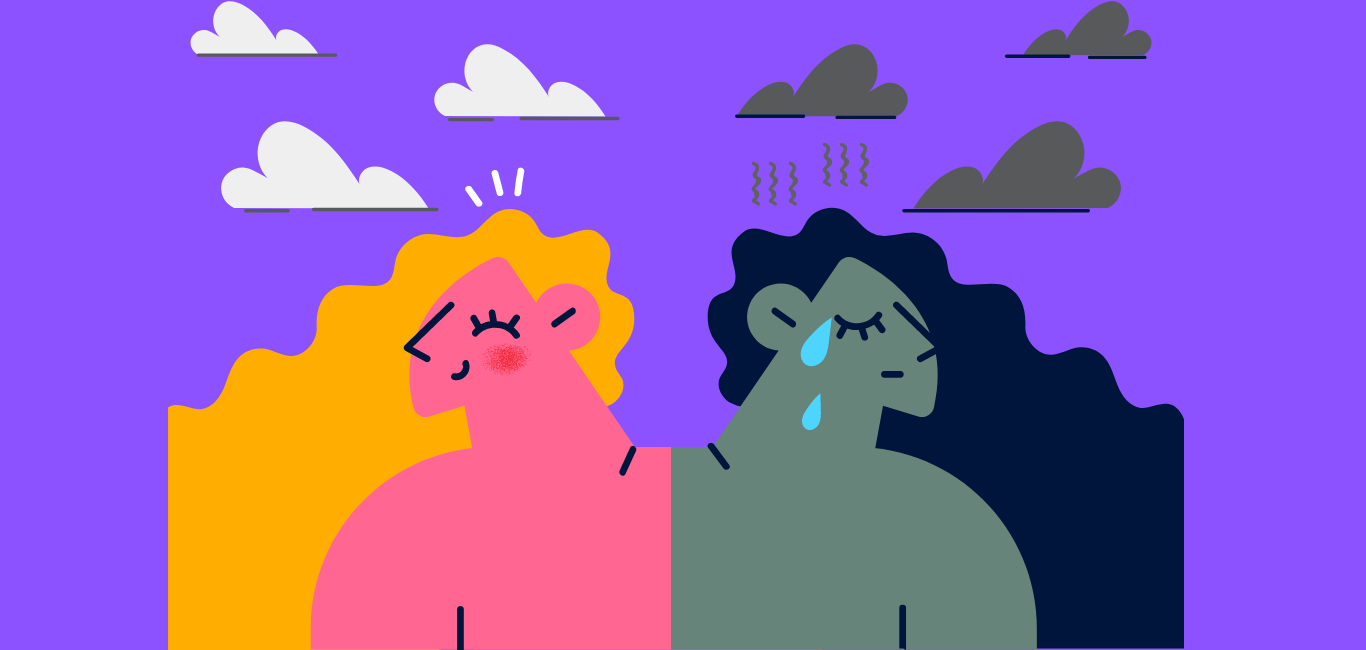
Aggression is not just about throwing punches during a bar brawl – it is a complex spectrum that can take many different forms.
We can witness this behaviour anywhere and everywhere. From something overtly physical to sneakily subtle, aggression comes in all shapes and sizes. From a child refusing to share a toy with a friend on the playground to a commuter’s impatience in a traffic jam, instances of aggression permeate our daily lives. And if not controlled, it can affect our personal lives, relationships, and the world at large.
What is aggressive behaviour?
According to the American Psychological Association’s Dictionary of Psychology, aggressive behaviour is “aimed at harming others physically or psychologically.” S Usha Rani, psychologist and therapist at Bengaluru, says, “Aggression does not come out of thin air. There are reasons behind it, and they can vary from person to person. Some common triggers include stress, frustration, feeling threatened, or even just a bad day.”
Many types and meanings
Usha Rani says aggression is a behaviour ingrained in human nature; it often appears in different ways, each with its own motives and expressions.
She says recognising the four different types of aggression can help us respond to them effectively and compassionately, promoting healthy and harmonious relationships.
-
Accidental aggression
Accidental aggression involves actions that are not deliberate or intentional but can harm others. Think of those moments when a simple mishap escalates into an unexpected quarrel, she says. “Accidents happen, but in this case, they inadvertently lead to aggressive behaviour.” It is like bumping into someone while distracted, resulting in an unintended fight. This kind of aggression is not done purposely.
-
Expressive aggression
Expressive aggression is like an emotional volcano ready to erupt. Usha Rani says this type of aggression comes out when an individual releases pent-up feelings, often in a heated and uncontrolled manner. “It is the intense yelling, screaming, and sometimes, even physical actions accompanied by overwhelming emotions,” she explains. Whether it is the frustration of a bad day or the anger from an argument, expressive aggression is all about letting emotions take the driver’s seat, and often leaving the person in regret once the dust settles.
-
Hostile aggression
Hostile aggression is also familiar to us. It involves harming others intentionally. Driven by hatred and the desire to harm another person physically and emotionally, it is the classic aggression we see in fights, dispute, and conflicts. Usha Rani says, “Think of a bar room brawl or a heated argument that turns into a physical altercation.”
-
Instrumental aggression
This type of aggression is not driven by a desire to hurt others for the sake of it. Instead, it is a strategic, cold move to achieve a specific goal. Instrumental aggression is calculated and purposeful.
Consider a competitive athlete trying to win a game by being overly aggressive on the field or a businessperson using cutthroat tactics to secure a deal. Here, the aim is to achieve an outcome, and aggression is simply the means to that end.
Evolution of aggression
Yudhajit Roychcowdhury, a counselling psychologist based in Kolkata says that the causes of aggression are manifold. It might be due to frustration when an individual is stopped from achieving a goal, or due to personal characteristics. “Frustration, stress, emotional dysregulation, anxiety and various other factors contribute to aggressive behaviours,” he points out.
According to Professor Jianghong Liu’s research, aggressive behaviour during early childhood is regarded as a natural part of development. It evolves as a person grows older, adapting to the changing stages of life.
When verbal skills develop
In the initial stages, when young children may lack advanced verbal skills, aggression tends to manifest in physical forms. However, as verbal communication skills develop, they can be employed both for peaceful dialogue and, at times, aggressive expression.
Professor Liu’s findings indicate that the most pronounced outbursts of anger tend to occur around 18 to 24 months of age, gradually subsiding by the time a child reaches five years old.
Consequences on health
According to a study conducted by Professor Jianghong Liu, PhD, an associate professor at the University of Pennsylvania, and his research team, aggressive behaviour can lead to significant health and psychosocial consequences for not only the individuals directly involved but also those who witness it.
Children exposed to family violence may be prone to exhibiting problematic behaviours themselves. The study also says infants living in households where aggression and violence occur may experience symptoms like irritability, sleep disturbances, emotional distress and physical complaints.
Hormones and society
Roychcowdhury points out that one’s biological disposition also matters more than genes alone. “Men are biologically predisposed to be more aggressive than women, which is mostly due to the effect of testosterone, the primary male hormone, which is known to increase aggressive behaviour,” he says.
Roychcowdhury goes on to highlight the pivotal role of the social environment in shaping aggression during a child’s upbringing. Aggression finds its expression through various channels, including cinema and TV shows, conflicts within families, and other societal influences.
He underscores physical discipline and corporal punishment of children in families and schools as a notable prevalent avenue for breeding aggression early. “This practice inadvertently imparts the lesson that physical aggression is an acceptable means of resolving conflicts,” he points out.
Therapeutic approaches
Various therapeutic approaches are effective in managing aggression. To name a few, experts speak of cognitive behavioural therapy or CBT, third-wave therapies like mindfulness-based stress reduction (MBSR), dialectical behaviour therapy or DBT, acceptance and commitment therapy or ACT, emotionally focused therapy and psychodynamic therapy.


















One Response
Very insightful.